On the morning of November 7, Deputy Minister of Agriculture and Environment Nguyen Quoc Tri led a working delegation of the Ministry to work with Lang Son province to discuss, grasp the reality, and remove difficulties and obstacles in the initial stage of operating the two-level local government organization model for the fields of agriculture and environment.
Working with the delegation were Chairman of Lang Son Provincial People's Committee Nguyen Canh Toan, leaders of the Department of Agriculture and Environment and leaders of a number of departments and branches of Lang Son province.

Deputy Minister Nguyen Quoc Tri affirmed that the Ministry will continue to accompany and closely coordinate with Lang Son province in the process of operating the two-level government model and handling difficulties and problems arising in practice. Photo: Hoang Nghia.
A series of regulations are no longer suitable for practice.
According to the report of the Provincial People's Committee, the model has been in operation for more than 3 months, the apparatus is basically stable, the number of focal points is streamlined, and the intermediary levels are reduced. However, the implementation is revealing many legal, procedural and implementation capacity issues. These problems, if not resolved promptly, will directly affect the progress and quality of state management and task implementation in the area.
In the field of cultivation and plant protection, specialized laws have not yet been adjusted to the new model. Some procedures after decentralization do not have specific forms and instructions. Currently, the province does not have a testing and testing center to carry out technical procedures itself, leading to the inability to proactively handle many types of records. Some records and original data from the central agency have not been fully handed over, causing localities to lack the basis to process re-issuance, adjustment, and extension of procedures.
The livestock, aquaculture and veterinary sectors also encountered problems. Disease surveillance, quarantine and slaughter control were difficult. The province lacked a slaughter control seal according to specialized regulations; veterinary staff were in short supply; the grassroots veterinary force had ceased operations, so vaccination work lacked direct personnel.
The transport hub quarantine system does not have enough inter-sectoral forces to coordinate; some records and data on quarantine, licensing, circulation of aquatic breeds and products have not been fully transferred to localities.
In the forestry and forest protection sectors, the problem lies in the lack of consistency between documents on the authority to allocate and lease forests, making it impossible to handle land and forest allocation procedures in a uniform manner. Regulations on forest objects that are supported for protection contracts are not consistent, affecting the implementation of national target programs.
For mountainous provinces, infrastructure projects are often related to interspersed natural forests, but the current conversion criteria are not suitable for reality, causing obstacles to attracting investment and socio- economic development. After converting the model, the area is large, and the forest ranger workforce is still lacking compared to the assigned staff.
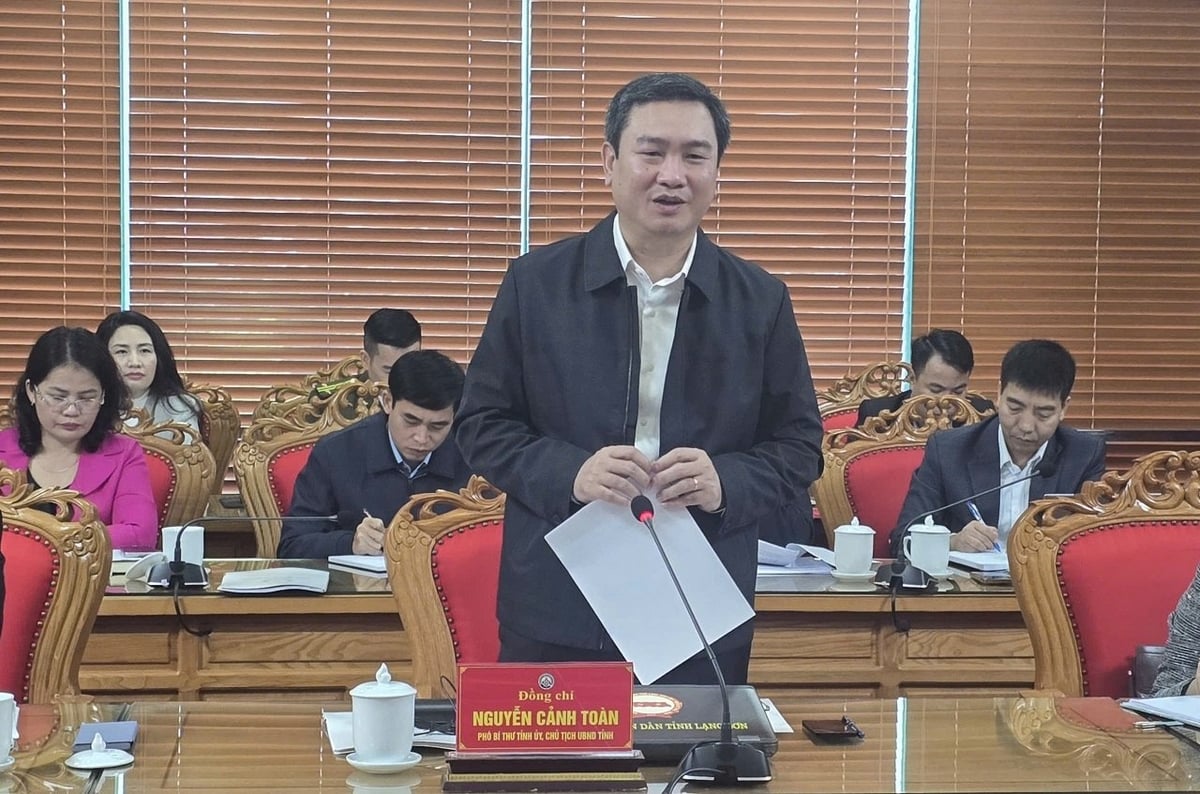
Chairman of Lang Son Provincial People's Committee Nguyen Canh Toan said that the working session was especially meaningful for the province, answering many questions so that the province could smoothly implement the 2-level government model. Photo: Hoang Nghia.
In the field of irrigation and natural disaster prevention, many current regulations are still designed according to the old model. The contents of acceptance of irrigation area to support the price of irrigation products and services, the contents of determining natural disaster emergency situations, the contents of post-disaster support... have not been adjusted according to the 2-level model, causing confusion and affecting the progress of payment settlement and support for agricultural production after natural disasters.
The land sector is the group with the most problems. Land valuation, land type determination, land allocation authority, land lease for transitional projects, exemption of land use fees, land rent for special investment incentive projects, etc. all have legal gaps. The land price list is being built on the old administrative unit, while the new model no longer has that level, causing difficulties in all stages of land price determination.
There are no clear regulations on the registration of assets attached to land when the owner is an organization. The enforcement of land users' rights during the period of land reclamation notice, due to the law's unclear restrictions, some cases still deliberately transfer rights to receive higher compensation.
The environmental and mineral sectors also lack a unified legal framework. Determining which projects require an environmental impact assessment report or an environmental protection plan requires comparing many documents; the process and forms for environmental appraisal and licensing are not unified, causing difficulties for both officials and businesses.
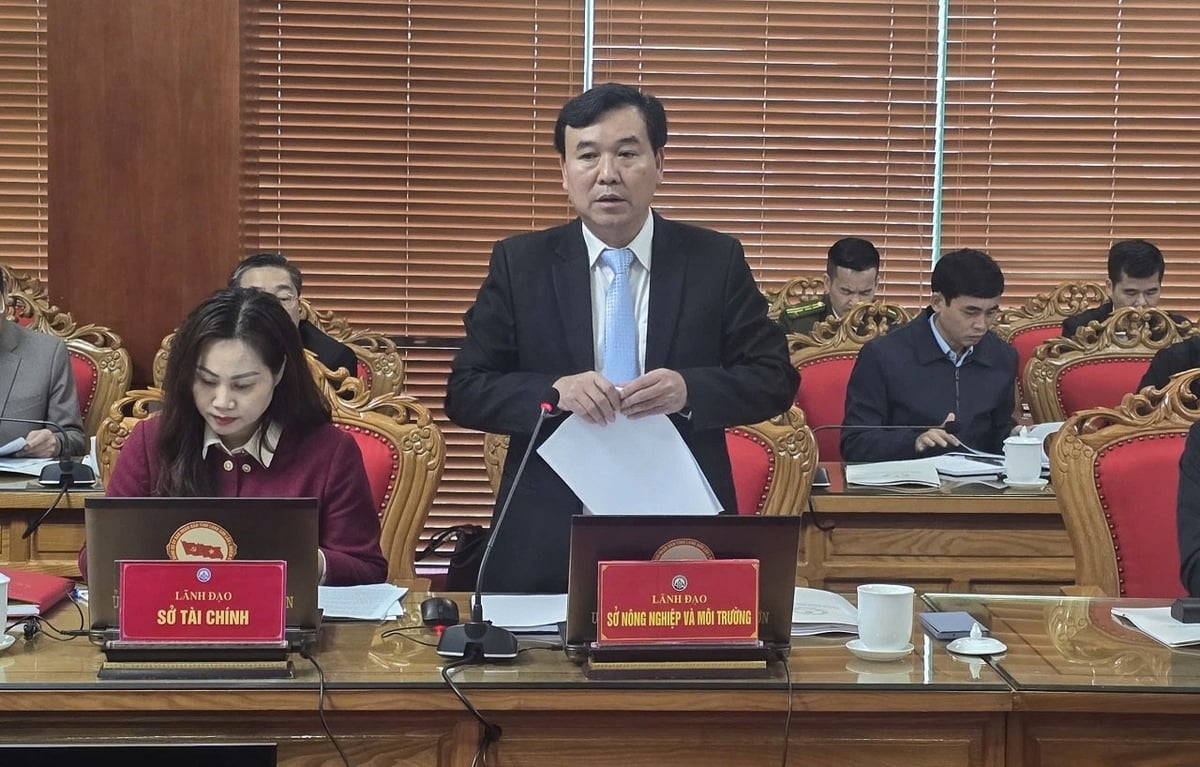
Director of the Department of Agriculture and Environment of Lang Son Nguyen Huu Chien proposed solutions to the problems in the field of agriculture and environment in the process of implementing the 2-level local government model in Lang Son province. Photo: Hoang Nghia.
The National Target Programs on New Rural Development and Sustainable Poverty Reduction also encountered difficulties due to changes in administrative units, leading to a lack of basis for comparison between the evaluation criteria and target progress for 2025 and the 2021-2025 period. The capital disbursement rate is low, there is a lack of initiative in proposing effective capital use; there is no multidimensional poverty standard for 2026-2030, so it is impossible to review simultaneously for 2025 and the new period.
Ministry of Agriculture and Environment accompanies provinces to remove 'bottlenecks'
At the meeting, representatives of a number of units under the Ministry of Agriculture and Environment directly discussed and answered suggestions from Lang Son province, and at the same time oriented a number of contents for the province to deploy tasks in the fields of agriculture and environment in a favorable manner when implementing a two-level local government.
Deputy Minister Nguyen Quoc Tri assessed that there are still many difficulties and problems in the fields of agriculture and environment in the province. However, the province has clearly identified the problems to have the right solutions to handle the arising problems.
Regarding the implementation of the two-level government model, Lang Son province has shown flexibility, creativity and determination to implement in accordance with policies and regulations. However, in reality, there are still many problems due to many reasons, some from the mechanism, some from awareness, some from the implementation organization.
Regarding the principle of handling problems, according to the Deputy Minister, the law must be followed exactly as it is prescribed. Officials and civil servants can only do what the law allows, while people and businesses can do what the law does not prohibit.
"Wherever there is a problem, handle it there, and do it within the authority. Whatever is under the province's authority, the province must resolve it; whatever is under the ministry's authority, the ministry must resolve it. Do not push the matter to a higher level just to "safeguard procedures", because doing so wastes time and opportunities for the province," the Deputy Minister emphasized.
According to Deputy Minister Nguyen Quoc Tri, since implementing the two-level government model, the Ministry has issued 34 guiding documents, removing obstacles, and is currently drafting 69 other documents including resolutions, laws, decrees, and circulars in the direction of appropriate decentralization, removing bottlenecks, simplifying procedures, and synchronizing with other laws. The Ministry has also issued electronic handbooks in many fields, suggesting that provinces look up and exploit them, as this is a synthesis of practical experiences from localities.
"Currently, the Ministry is seeking opinions from localities to perfect the system. This is a rare "open door" moment, if missed, it will be very difficult to fix later. Therefore, we request the province to direct specialized units to review and send all specific problems with documents, so that the Ministry has a basis to handle them thoroughly," said the Deputy Minister.
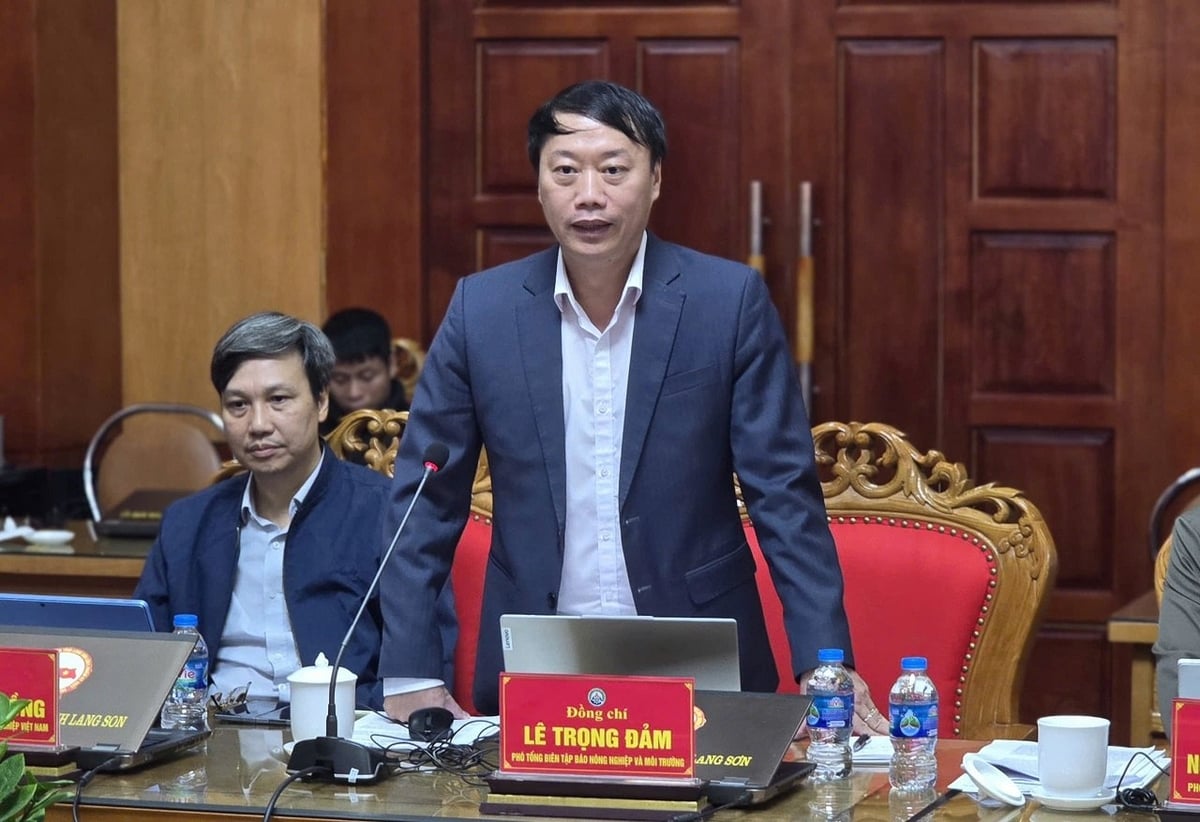
At the meeting, representatives of leaders of several units of the Ministry of Agriculture and Environment discussed and answered recommendations from Lang Son province. Photo: Hoang Nghia.
Regarding the organizational structure of public service units in the forestry sector, the Deputy Minister noted that the ultimate goal is to effectively protect forests, without creating intermediate levels, without increasing staff, and without increasing costs. If the current model is effective, it should be maintained, and the province should carefully consider this option.
Regarding agricultural development in Lang Son, the Deputy Minister said that the province has large land, diverse climate, abundant labor, and sufficient foundation for developing commodity agriculture. He suggested that the province pay attention to appropriate crop structure; apply science and technology, digital transformation in production, processing, and consumption. Livestock should be raised in a concentrated direction, promoting agricultural models associated with eco-tourism to increase product value.
"The Ministry of Agriculture and Environment will continue to accompany and closely coordinate with Lang Son province in the process of operating the two-level government model and handling difficulties and problems arising in practice," the Deputy Minister emphasized.
Source: https://nongnghiepmoitruong.vn/khoi-thong-diem-nghen-phap-ly-linh-vuc-nong-nghiep-va-moi-truong-d782858.html



![[Photo] Cutting hills to make way for people to travel on route 14E that suffered landslides](https://vphoto.vietnam.vn/thumb/1200x675/vietnam/resource/IMAGE/2025/11/08/1762599969318_ndo_br_thiet-ke-chua-co-ten-2025-11-08t154639923-png.webp)





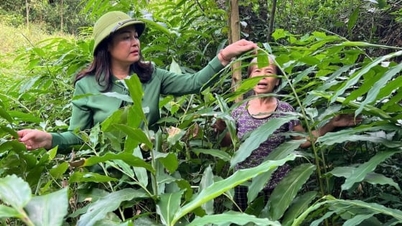





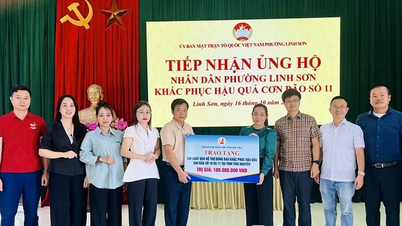

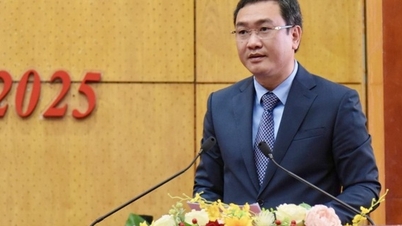










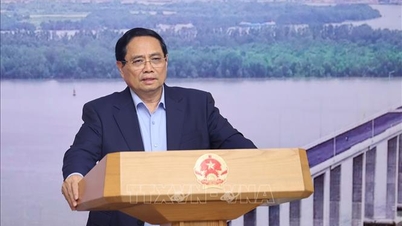





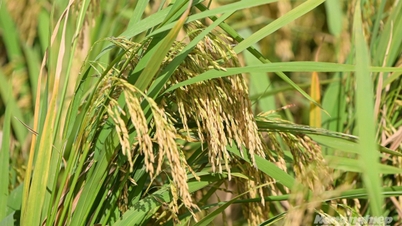


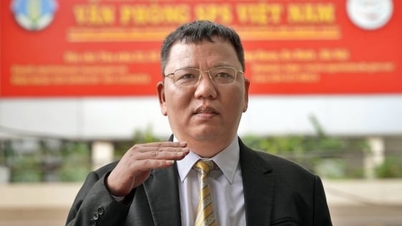

![[Photo] "Ship graveyard" on Xuan Dai Bay](https://vphoto.vietnam.vn/thumb/1200x675/vietnam/resource/IMAGE/2025/11/08/1762577162805_ndo_br_tb5-jpg.webp)





![[Video] Hue Monuments reopen to welcome visitors](https://vphoto.vietnam.vn/thumb/402x226/vietnam/resource/IMAGE/2025/11/05/1762301089171_dung01-05-43-09still013-jpg.webp)

































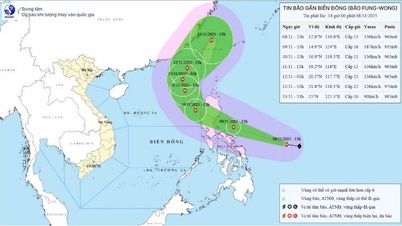












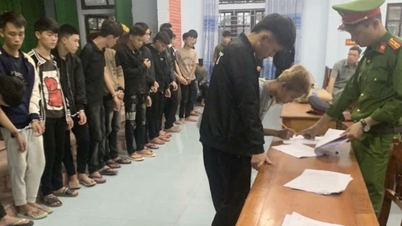

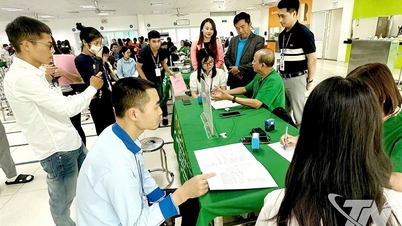



















Comment (0)